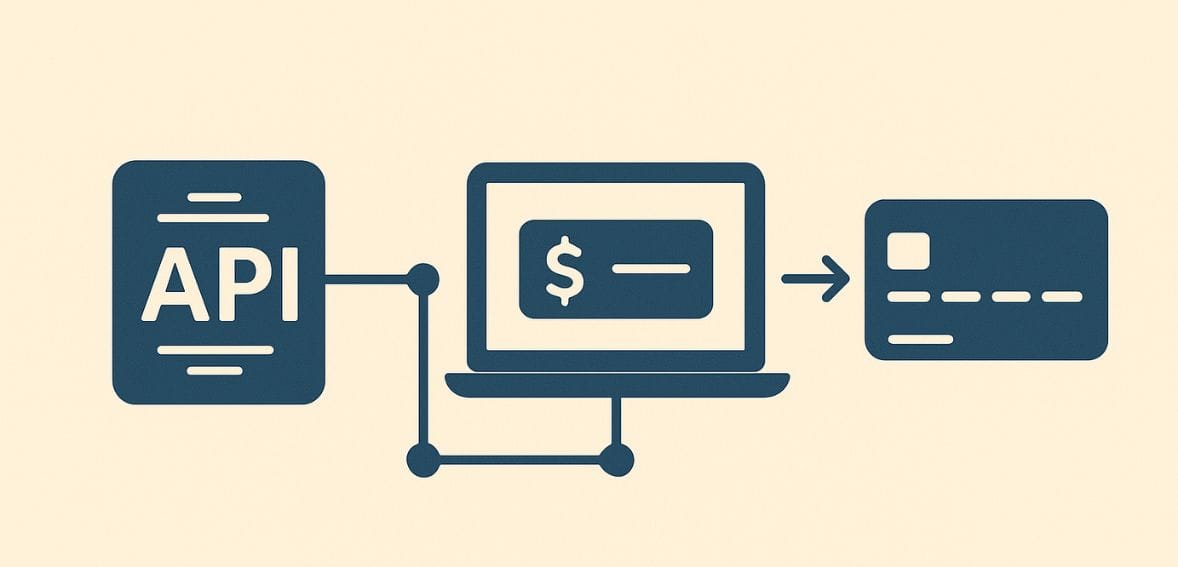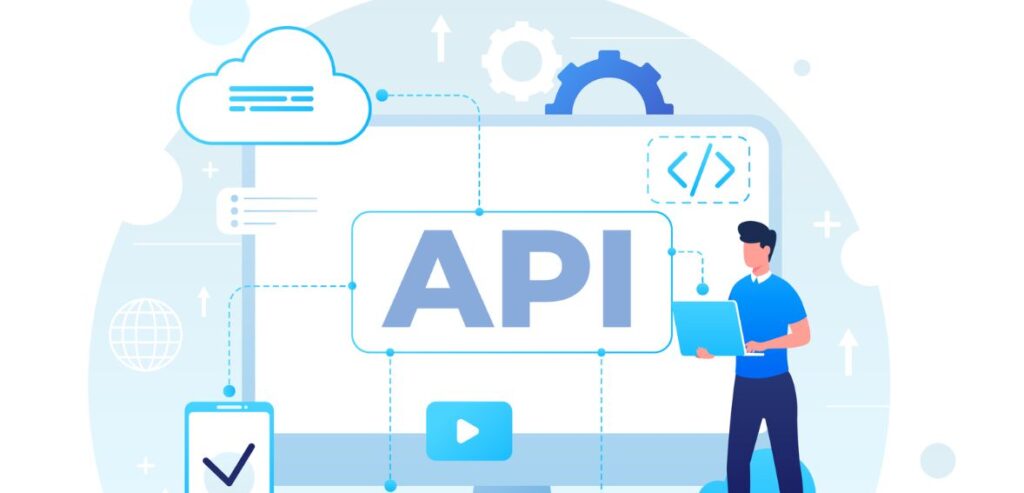
By mynewclover August 24, 2025
The way businesses handle payments is one area where the digital economy’s emphasis on speed, security, and convenience is most noticeable. Customers’ increasing demands for quick, easy, and secure checkout processes have led to a significant change in the payment processing industry over the last ten years. The application programming interface, or API, is at the center of this development.
Although APIs might appear to be a strictly technical idea, their function in payment processing has significant effects on how companies run, grow, and gain the trust of their clients. APIs are more than just bits of code for online companies; they are the unseen links that link payment networks, websites, and apps to produce dependable, seamless transactions. Knowing how payment systems are altered by APIs reveals the hidden engine powering modern commerce.
The Role of APIs in Modern Payment Infrastructure

It helps to think about what online transactions used to look like to understand why APIs have become so essential to payment processing. It was difficult and time-consuming to integrate payments into a website in the early days of e-commerce. Companies were forced to use difficult systems that frequently required manual connections between platforms, processors, and banks. Much of that friction has been removed by APIs.
They enable real-time communication between applications by serving as connectors. In terms of payment processing, this implies that an online store can instantly connect to its payment gateway, validate card information, authorize transactions, and update inventory—all in a matter of seconds. APIs are elegant because they make complexity simpler.
What once required weeks of coding and back-end development can now be done by integrating an API from a payment provider. This ease of connection allows businesses to scale quickly, launch new services, and adapt to changing customer expectations without having to rebuild their entire payment infrastructure.
Why Payment Experiences Shape Customer Trust
Customers’ trust in payment methods is based on how secure, seamless, and professional the process feels to them, not just on whether a transaction is successful. A single negative payment experience, like a card being declined without explanation or perplexing refund delays, can destroy the trust that a company has worked so hard to earn.
Consumers prefer payment methods that reflect their way of life, whether that means traditional credit transactions, contactless cards, or digital wallets. Businesses demonstrate their appreciation for their customers’ time and peace of mind by acknowledging these preferences and making sure payments are secure and simple. This steady dependability builds trust over time and creates the groundwork for recurring business.
Security and Compliance Through APIs

Maintaining customer data security while meeting strict compliance requirements is increasingly critical for online businesses. Integration via APIs makes this easier—but it’s equally important to understand broader security frameworks. Exploring how strengthening payment security protects both your business and customers can elevate your defenses against evolving threats.
This is made possible in large part by APIs. Tokenization, encryption, and fraud detection are all built into the frameworks of contemporary payment APIs. This implies that sensitive payment data is stored in a way that reduces risk in addition to being transmitted securely.
APIs relieve merchants of the burden of handling every aspect of compliance on their own. Payment providers frequently manage encryption keys, fraud monitoring, and PCI DSS standards; by integrating the appropriate API, businesses can stay compliant.
Through this collaboration, internet companies can concentrate on expansion while knowing that security is being handled by experts. APIs develop concurrently with the competence of cyberthreats, constantly updating to identify irregularities, stop questionable transactions, and protect companies from expensive security breaches.
Customization and Flexibility
Every internet company is different, with a distinct customer base, products, and business strategies. Businesses can customize payment experiences to meet their unique needs thanks to APIs. For example, a subscription-based company can incorporate APIs that manage automatic renewals, retry logic for unsuccessful payments, and recurring payment solutions to keep billing consistent and customer experience smooth.
An international e-commerce company can connect to local payment methods in different regions and plug in APIs that accept multiple currencies. This customization includes not only functionality but also branding and customer experience. Instead of sending clients to a third-party portal, many companies use APIs to build a fully integrated checkout page that blends in with the style and feel of their website.
In online commerce, where consumers are wary of where they enter their financial information, this builds trust and a sense of continuity. APIs enable companies to create payment systems that meet customer expectations and brand identity while also being functional.
The Globalization of Payments

Payment APIs enable cross-border customer service as online businesses become more global in scope. It would be difficult and costly to connect to numerous banks, processors, and local payment methods in various nations without APIs. However, companies can quickly and effectively integrate international payment solutions with APIs.
For example, without having to create separate agreements with foreign banks, a small retailer in the US can use APIs to accept payments from clients in Asia via Alipay and WeChat Pay or in Europe via SEPA transfers.
Due to the democratization of global trade, even smaller internet companies can now easily enter new markets and grow globally. Online retailers now have the same payment options as big, international companies, as APIs successfully remove the geographical restrictions that previously applied to them.
APIs and Real-Time Data Insights
APIs are crucial for providing businesses with insight into their financial operations in addition to handling payments. Businesses can access dashboards that monitor transactions, chargebacks, refunds, and revenue trends in real time by using payment APIs. Making decisions is greatly aided by these insights.
Data from payment APIs, for example, can be used by an online retailer to determine the best times to buy, spot anomalous activity, or gauge the effectiveness of a marketing campaign.
APIs Driving Innovation in Payment Options
APIs enable businesses to adapt to changing payment preferences. APIs enable innovations such as cryptocurrency payments, buy now, pay later services, and advanced digital wallets. Businesses can easily integrate the appropriate API rather than completely redesigning their systems every time a new payment method appears.
In today’s dynamic environment, where customer expectations are constantly changing, this flexibility is essential. Online retailers can satisfy these demands without incurring the expenses and complications of developing completely new systems by utilizing APIs. This flexibility guarantees that companies stay competitive by providing payment methods that draw in and keep clients while adjusting to the demands of the future of business.
The Cost Efficiency of APIs

In addition to their technical benefits, APIs save businesses money. Custom development was necessary for traditional payment integrations, which were expensive and time-consuming. This procedure is streamlined by APIs, which lowers the initial outlay as well as ongoing maintenance expenses.
Additionally, APIs decrease the need for manual intervention by automating procedures like fraud detection, reconciliation, and reporting, which lowers labor costs and the possibility of human error. These savings can be crucial for small businesses and startups with limited funding. By lowering the cost and enabling advanced payment processing capabilities for companies of all sizes, APIs level the playing field.
Challenges and Considerations
APIs have challenges despite all of their benefits. Businesses must carefully choose API providers who share their objectives in order to make sure they provide dependable uptime, robust security, and prompt support. APIs with poor design can make integration difficult or put companies at risk.
Furthermore, even though APIs streamline a lot of the payment processing process, their successful implementation still calls for a certain level of technical know-how. Businesses without internal developers might have to depend on outside partners, which can increase expenses and dependencies.
Lastly, managing numerous integrations across various services can become challenging as APIs continue to grow in popularity, necessitating careful planning to prevent fragmentation.
The Future of APIs in Payment Processing

In the future, APIs will continue to influence how online payments develop. Payment APIs are incorporating cutting-edge technologies like artificial intelligence and machine learning to improve fraud detection and provide more individualized customer experiences. APIs are also driving open banking initiatives, which provide secure access to financial data to third-party providers, opening the door for more inventive financial services and products.
This implies that the payment environment will become even more dynamic for businesses. In addition to linking systems, APIs will add intelligence and flexibility to each transaction. Businesses that adopt these innovations will be in a better position to provide clients with the streamlined, safe, and customized experiences that they are demanding more and more.
Conclusion
Despite their quiet background operations, APIs have a significant impact on online payment processing. They have turned what was formerly a complicated, fragmented system into a seamless, flexible, and worldwide infrastructure that enables businesses of all kinds. APIs have completely changed the way online retailers compete in the digital economy and serve their customers by enabling speed, security, customization, and real-time insights.
APIs will continue to play a key role in the development of the payments industry, propelling advancements that improve the speed, intelligence, and customer experience of transactions. Investing in strong API integrations is a strategic decision that affects online businesses’ capacity to prosper in a market that is changing quickly. It is not just a technical one. In the current era of digital commerce, payment APIs are more than just code; they are the cornerstone of opportunity, growth, and trust.